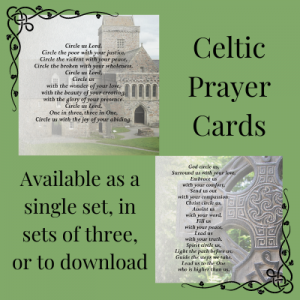Originally published on EvoFaith blog here. Links to a video and audio version can be found at the bottom of the post.
Have you ever experienced a ‘thank you’ that didn’t leave you feeling appreciated? Or perhaps you’ve seen someone use thanksgiving as a way to show everyone else how specially ‘blessed’ by God they were? Clearly not all thankfulness is created equal.
Many years ago, back in my Pentecostal fundamentalist days, I attended a healing conference that was hosting a well-known international evangelist and healer. During the first session we were encouraged to mill around and meet the other delegates. I ended up talking with two other young men (I was a young man back then). The one was rather quiet, but his friend was extremely vocal, launching in to a monologue about the giftedness and God-blessedness of his quiet friend, who was clearly embarrassed. He also kept mentioning how blessed and thankful he was to be able to minister with his quiet and gifted friend. The not-very-subtle implication was that he must clearly also be gifted and favoured by God to have been placed in partnership with such a gifted spiritual giant. His words expressed thanksgiving, but his attitude and tone revealed something very different. Again—not all thankfulness is created equal.
There is a lot that is written about the power of thanksgiving. There is no question that a habit of thankfulness increases our sense of contentment, deepens our experience of pleasure and happiness, and builds better relationships. I wholeheartedly support anything that empowers us to be more automatically thankful in our lives. It is for good reason that children are taught from the moment they can speak to say thank you.
But there is also a limit to thankfulness. Especially when it comes to spiritual practice. In a much-misused parable in Luke 18:10-14, Jesus describes two different prayers. This is what it says:
Two men went to the Temple to pray. One was a Pharisee, and the other was a despised tax collector. The Pharisee stood by himself and prayed this prayer: ‘I thank you, God, that I am not like other people—cheaters, sinners, adulterers. I’m certainly not like that tax collector! I fast twice a week, and I give you a tenth of my income.’
But the tax collector stood at a distance and dared not even lift his eyes to heaven as he prayed. Instead, he beat his chest in sorrow, saying, ‘O God, be merciful to me, for I am a sinner.’ I tell you, this sinner, not the Pharisee, returned home justified before God. For those who exalt themselves will be humbled, and those who humble themselves will be exalted.
While this parable might justifiably be used to show the dangers of self-righteousness, it should not be stretched—as it often is—to promote self-loathing as a Christian virtue. Such ‘worm-theology’ does no one any good and misses the point of the parable, which is that religious people can often seem righteous outwardly, but in their arrogance, judgment of others, and lack of compassion they are further from God’s Reign than those who recognise their need to grow.
But there is something else that is illustrated in this parable—and this is where it begins to speak into our evolutionary spirituality. The Pharisee’s prayer expresses a strong thankfulness. But he is thankful for the wrong things and in the wrong way from Christ’s perspective.
First of all, he credits God for his station in life. He believes that he has been chosen by God for special favour which ensures that he is morally, personally, religiously, and probably economically better than others. To use the language of today’s toxic religion, he considers himself ‘blessed.’ But these are the wrong things to be thankful for. They are not signs of God’s blessing or favour. They simply represent that in an unequal world he was lucky enough to have been born into a situation where he could enjoy greater comfort, status, and respect than others. Notice that Jesus specifically points out that, when he prays this prayer, he is standing by himself. His thanksgiving has not won him any friends, it seems—probably because it has been nothing more than empty words that he spoke to build up his ego. His thankfulness has not changed him or inspired him to any kind of action that could touch or benefit anyone else.
In my experience, prayers of thanks are often like this. We look for good things in our life, attribute them to God’s divine intervention, and then give thanks as a way to confirm for ourselves that we are the recipients of God’s favour, God’s blessing.
And, if we can ascribe human feelings to God for a moment, how might God be feeling about this kind of thankfulness? I can’t say for sure, but my instinct suggests about as impressed as God was by the Pharisee in Jesus’ parable.
You see, true thankfulness can never be words alone. Thankfulness should always be a cause for us to pause and think—to become more thoughtful. Firstly, we should be far more thoughtful and honest about why we might enjoy good fortune, and be much slower to attribute our ‘blessings’ to a God who is impressed with us for any reason.
But secondly, authentic thankfulness usually makes us more thoughtful about what we should do with our good fortune. And the answer, while it may take many forms, is really only one thing: we should share it. There’s an internet meme going around that speaks to exactly this point: “When you have more than you need, build a longer table, not a higher fence.”
In an evolutionary spirituality, there is no Divine Judge to impress with our obedience, righteousness, and religious purity. There is no benefit to legalistically following religious rules and convincing ourselves that whatever good fortune we receive is God’s reward for our purity and holiness. The evolutionary God does not bless some and curse others.
Rather, whatever good fortune we may enjoy is a call to thoughtfulness and generosity. It is an opportunity to recognise that we have received an advantage for no reason other than that this is how an evolutionary universe works. In this particular facet of our lives, we find ourselves in a position to overcome life’s challenges and contribute to the growth, connection, and creativity of the world. And with this good fortune comes an invitation—and, in my opinion, a responsibility—to share. To quote the Spider-Man movies, “With great power (or in this case, with great advantage) comes great responsibility.”
No ‘blessing’ is ever given to a single individual or group. Whatever is given is always meant to be shared. There is no exceptionalism in authentic evolutionary spirituality. There is just each of us recognising—through thanksgiving—what opportunities and resources we have to contribute to the common good. And then there is the response, out of this awareness, of thoughtful, generous, contribution to the people and society around us in whatever way we can.
Thanksgiving is a profoundly effective discipline. And it is one that I encourage us all to nurture and develop as intentionally and consistently as possible. But it should never be an excuse to separate ourselves from others—especially those in need. It should never be a reason to consider ourselves better, or more ‘blessed’, than others. It should always lead us to be more compassionate, generous, and considerate—to shift from mere thankfulness to a deep thoughtfulness in which we consider carefully how our ‘blessing’ may become a ‘blessing’ to those around us. And when thankfulness does this, it not only enriches our world. It enriches our lives with an ever-expanding sense of contentment, joy, and connection. And that’s something to be thankful for.
This article can also be found in a YouTube video and for audio on a podcast episode.
John van de Laar is also running a free webinar “How to Thrive as church in the New World – 7 Essential Paradigm Shifts”. Sign-ups for the webinar can be done here.
 Celtic Prayer Cards include 10 prayers inspired by ancient Celtic saints like Patrick or contemporary Celtic writers like John O’Donohue. A short reflection on the back of each card will introduce you to the Celtic Christian tradition, along with prayers by Christine Sine and beautiful imagery crafted by Hilary Horn. Celtic Prayer Cards can be used year-round or incorporated into various holidays. Available in a single set of 10 cards, three sets, or to download.
Celtic Prayer Cards include 10 prayers inspired by ancient Celtic saints like Patrick or contemporary Celtic writers like John O’Donohue. A short reflection on the back of each card will introduce you to the Celtic Christian tradition, along with prayers by Christine Sine and beautiful imagery crafted by Hilary Horn. Celtic Prayer Cards can be used year-round or incorporated into various holidays. Available in a single set of 10 cards, three sets, or to download.

